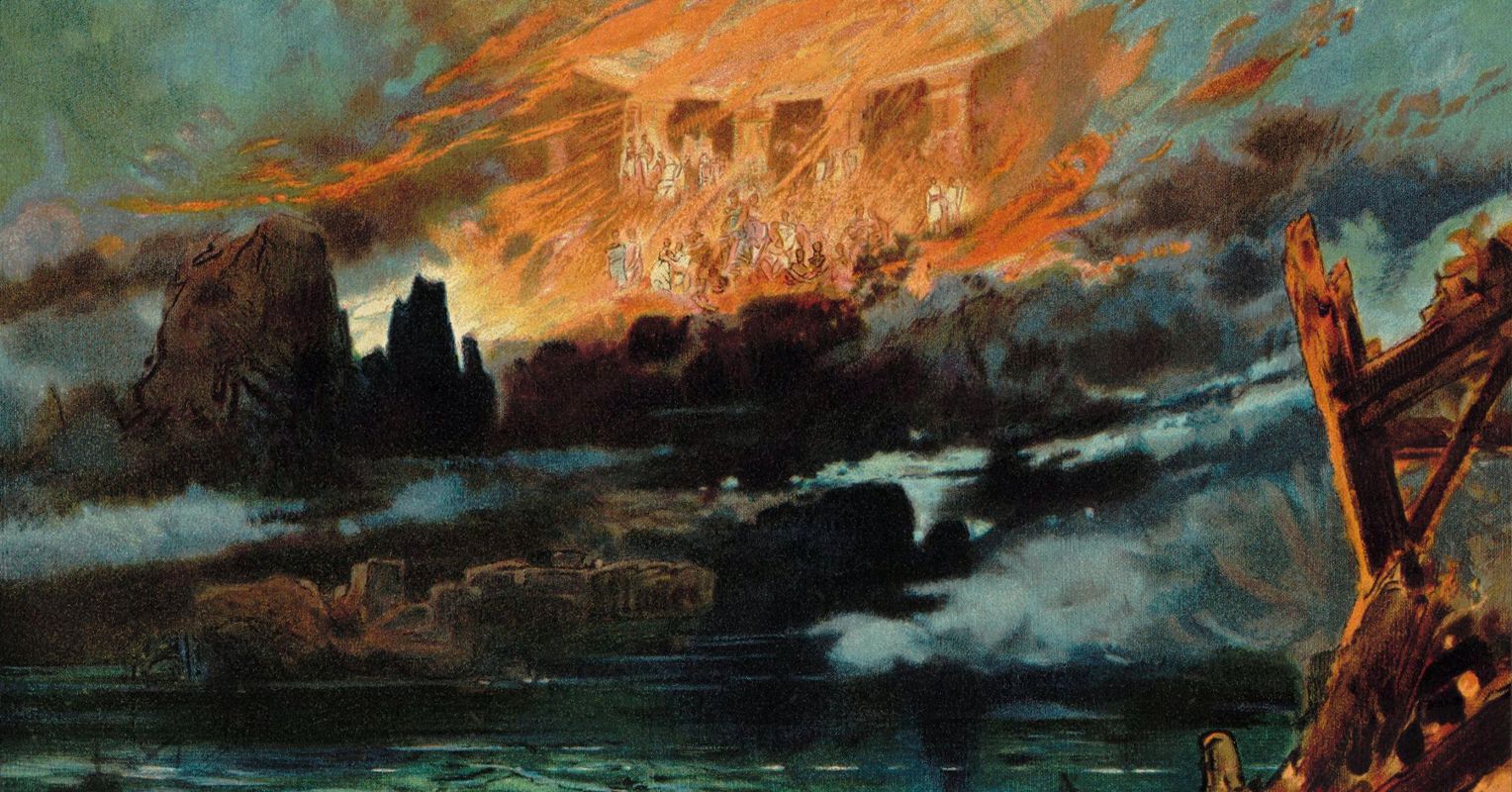970x125
In 2000, Time magazine warned of a coming Boomerdämmerung. The Baby Boomers, it argued, had failed to build enduring wealth, were unprepared for the digital transition, and carried a narcissistic entitlement that made them reluctant to relinquish power. “And your neighbors’ children,” the magazine warned, “simultaneously burdened with the cost of your aging and victimized by the one thing you’ll hold onto—your political power—will boil with resentment.”
The forecast was of a looming gerontocracy that could entrench itself in political power and then fracture under its own weight.
Twenty-five years later, the twilight has arrived more slowly than expected, and many of the international institutions built to stabilize the postwar industrial order are also showing their age and fragility. What is fading, then, is not just a demographic cohort but an entire worldview: one that imagined large institutions as the guarantors of order, morality, and free markets.
The Twilight of a Generation
Much of the world’s political and economic power remains concentrated in the hands of leaders from one generation: The Boomers. From Modi to Netanyahu, Erdoğan to Putin, Xi, and Trump, the most consequential figures of our time were shaped before the internet, before the knowledge economy, before algorithmic governance. They preside over nuclear arsenals, central banks, and global networks of power.
That such radically different characters, with divergent worldviews and life histories, belong to the same generation is itself a reminder: age does not make for psychological or biographical similarity.
What is striking is twofold. First, many of the world’s pivotal institutions, many states and companies alike, are led by people in the twilight of their careers, wielding immense influence in systems already straining under their grasp. Second, hubris is increasingly public. A recent, apparently accidental, leak suggested that Vladimir Putin and Xi Jinping mused privately about immortality and medical technologies that might extend their rule indefinitely.
History is full of rulers who dreamed of permanence through dynasties, monuments, or divine sanction. Today, such gestures read less as strategy than theater: myths of permanence staged for audiences that already see their fragility.
The Gods Are Old
Here, the themes of psychology and mythology converge. Terror management theory suggests that when confronted with mortality, people cling more tightly to symbols of permanence. Merging personal identity with the enduring ideas associated with nations, ideologies, monuments, and myths is a tempting way to cement a personal legacy. The leaked musings are not surprising in this light: They are simply the theatrical version of a universal impulse. But when enacted at the scale of any power or leadership, denial of decline can destabilize succession and make both the person and the institution look unstable or illegitimate.
Boomerdämmerung is a play on Wagner’s Götterdämmerung, the final opera of the Ring cycle: a mythological opera that stretches from the primordial undercurrents of a shared humanity to twilight, collapse, and renewal.
Wagner’s gods were not only gods but also thinly veiled portraits of Germany’s 19th-century nobility. They were corrupt, jealous, venal, and they were guarantors of an old order. They clung to wealth and power while neglecting stewardship of their realms. Wagner’s audiences understood the symbolism: rulers who squander legitimacy cannot reform; tricks, deceit, and creating elaborate rules with increasingly elaborate loopholes accelerate the eventual fall.
Hubristic talk of immortality among aging autocrats is the perfect emblem of this condition. Like Wagner’s gods, many seem unable or unwilling to imagine a world that exists beyond their own reign.
In the Ring cycle, once Wotan understands that his own downfall is inevitable, he searches for an ending dramatic and tragic enough not to trivialize or mock his existence.
Everything Happening at Once
Part of the turbulence of transitions is that change seems to occur at every level simultaneously. Families feel economic pressure; communities respond to national debates; global crises shape personal identity. The challenge is to avoid conflating the personal with the historical, and not to read instability in one’s own life as proof that society itself is unravelling.
What Comes After the Twilight
The twilight of one generation has never been the end of the world. But Wagner reminds us that twilight must be taken seriously, precisely because the rules of the old order no longer hold. In periods of stability, promises are enforced by shared norms and external authority; in twilight, those guardrails weaken. Betrayal, neglect, and hubris are easier, but everyone has choices about how to act, even when responsibility is no longer tethered to strong structures and institutions.
Psychologically, this maps onto the problem of autonomy without interdependence. When institutions weaken, individuals or leaders may act as if free from constraint, but without the reciprocal bonds of trust, responsibility, and accountability, that freedom corrodes both the person and the system. This is why succession is so fragile: twilight is the moment when institutions and groups must either renew themselves through responsible stewardship or collapse.
Wagner’s Ring Cycle is composed of four operas unfolding from Das Rheingold to Götterdämmerung. One of the main ideas dramatized is the concept that endings are never simple, nor are they truly the end.
Each opera in the cycle offers perspectives and themes that add to the whole story. Das Rheingold reminds us that myths and stories guide collective meaning. Die Walküre dramatizes that every crisis feels unique, yet transitions are never clean breaks: the old lingers as the new struggles into being. Siegfried illustrates that agency begins small, in the spheres we can influence, expanding outward as strength and resilience grow.
Taken together, these are not only operatic themes but psychological and philosophical ones. As Roger Scruton argues: “The Ring does not argue for a thesis: it shows us what we are, and so helps us to understand, through sympathy, what is at stake in our moral choices.”
Even in twilight, there are signs of growth and revitalization, endings clear space for renewal and remind us that choice and agency matter, even if only as small acts within a larger, constantly unfolding drama.



